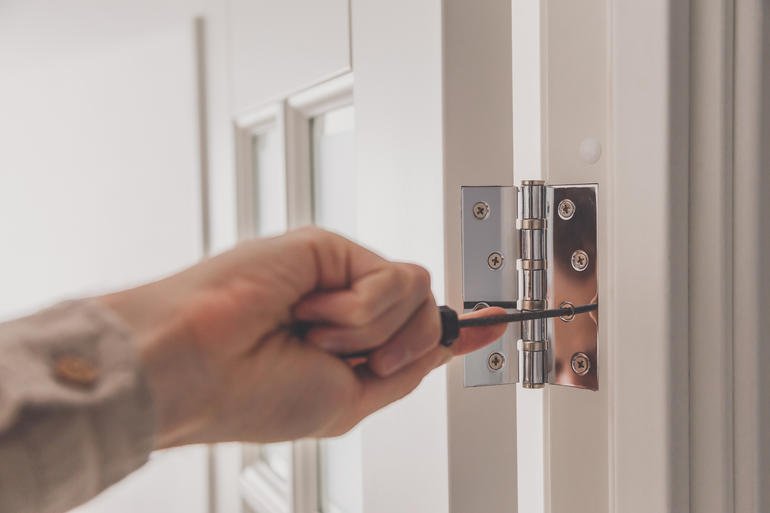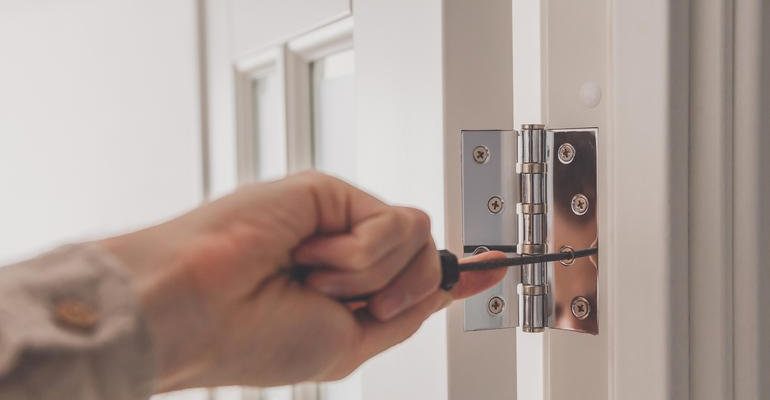
Just like any other part of your home, door hinges require a bit of TLC. Cleaning them can remove built-up grime, dust, and even rust. However, cleaning can sometimes inadvertently lead to stiffness if not handled properly. So, grab a cup of coffee, and let’s dive into the ins and outs of why your door hinge feels stiff after cleaning and how you can fix it!
Understanding Door Hinges: What Makes Them Tick?
Door hinges are those unsung heroes in your home, doing the heavy lifting every time you enter or leave a room. Typically made of metal, hinges consist of two plates (or leaves) connected by a pin. These plates allow your door to swing open and shut smoothly. But, here’s the thing: they need to be well-lubricated to function effectively.
You might be surprised to learn that there are several types of hinges—some for heavy-duty doors and others for lighter ones. Each type has its own set of requirements. For instance, a *butt hinge* is commonly used for interior doors, while a *continuous hinge* spans the entire length of the door, offering extra support. Understanding these differences can help you troubleshoot any stiffness issues later on.
Cleaning Your Hinges: The Right Way
When it comes to cleaning your door hinges, it’s essential to use the right approach. Many people jump straight into scrubbing, which can lead to problems. Here’s how to clean them properly:
- Remove the hinge pins: If possible, take out the hinge pins to make cleaning easier.
- Choose a cleaner: Use a mild detergent or a specialized cleaner. Avoid harsh chemicals that may corrode the hinge.
- Scrub gently: Use a soft brush or cloth to scrub away dirt. Don’t forget to clean inside the hinge, too!
- Rinse and dry: Rinse off any cleaner and dry the hinges thoroughly to prevent moisture buildup.
Cleaning hinges properly can help maintain their function and extend their lifespan. However, even with the best efforts, you may find they feel a bit stiff afterwards.
Why Stiffness Occurs After Cleaning
So, why does your door hinge feel stiff after cleaning? Here are a couple of culprits:
1. Lack of Lubrication: When you clean your hinges, the cleaning solution may strip away the existing grease. If you forget to reapply lubricant, it can lead to stiffness. Think of it like washing your car—you wouldn’t leave it without a coat of wax, right?
2. Water Damage: If you used too much water during cleaning, moisture could have gotten inside the hinge. Over time, this can lead to rust, which makes the hinge stiff.
3. Debris Build-Up: Sometimes, while cleaning, dirt or grime can get lodged in the hinge itself. This can cause friction and lead to the sensation of stiffness when opening or closing your door.
How to Fix Stiff Hinges
If you find that your door hinges are stiff, no need to panic! There are straightforward steps you can take to get them back to working order:
- Reapply Lubrication: Use a penetrating oil or silicone spray, which can easily seep into the hinge and reduce stiffness.
- Work the hinge: Open and close the door multiple times after adding lubricant. This helps distribute the oil evenly and breaks down any remaining debris.
- Wipe away excess: After working it in, wipe off any excess lubricant to prevent dirt from sticking in the future.
If your hinges remain stiff after following these steps, it might be time to assess the condition of the hinges themselves. Over time, hinges can wear out or become damaged, requiring replacement.
Preventing Future Stiffness
To keep your door hinges operating smoothly, preventive measures can go a long way. Here are some tips:
1. Regular Maintenance: Make it a habit to check and clean your hinges every few months. A quick wipe-down can help prevent build-up and stiffness.
2. Choose the Right Lubricant: Not all lubricants are created equal. Silicone-based lubricants are often recommended for door hinges because they provide lasting protection against rust and wear.
3. Watch for Moisture: Be mindful of the areas around your doors. If you notice moisture buildup, address it quickly to prevent rusting.
4. Inspect for Damage: If you have persistent issues with stiffness, inspect your hinges for signs of damage or wear. Replacing them may be the best option.
When to Consider Replacement
Not every stiff hinge can be saved. If cleaning and lubrication don’t resolve the issue, you might need to replace your hinges. Here are some signs it’s time to consider a replacement:
- Visible Damage: If the hinge is cracked, bent, or shows signs of corrosion, replacement is likely necessary.
- Excessive Noise: A loud squeak may indicate internal wear that cleaning can’t fix.
- Frequent Sticking: If the door regularly sticks or feels like it’s dragging, new hinges may solve the problem.
Replacing door hinges isn’t as daunting as it sounds. With a few basic tools and a little DIY spirit, you can tackle this job yourself.
It can be surprising to find your door hinges feeling stiff after cleaning, but understanding the reasons behind it can help you troubleshoot effectively. Whether it’s a lack of lubrication, moisture, or accumulated debris, you now have the tools to tackle the issue head-on. Remember, regular maintenance and a little preventive care can go a long way. So, the next time your door sticks after cleaning, take a moment to assess. With a bit of care, you’ll have those hinges swinging smoothly in no time!
